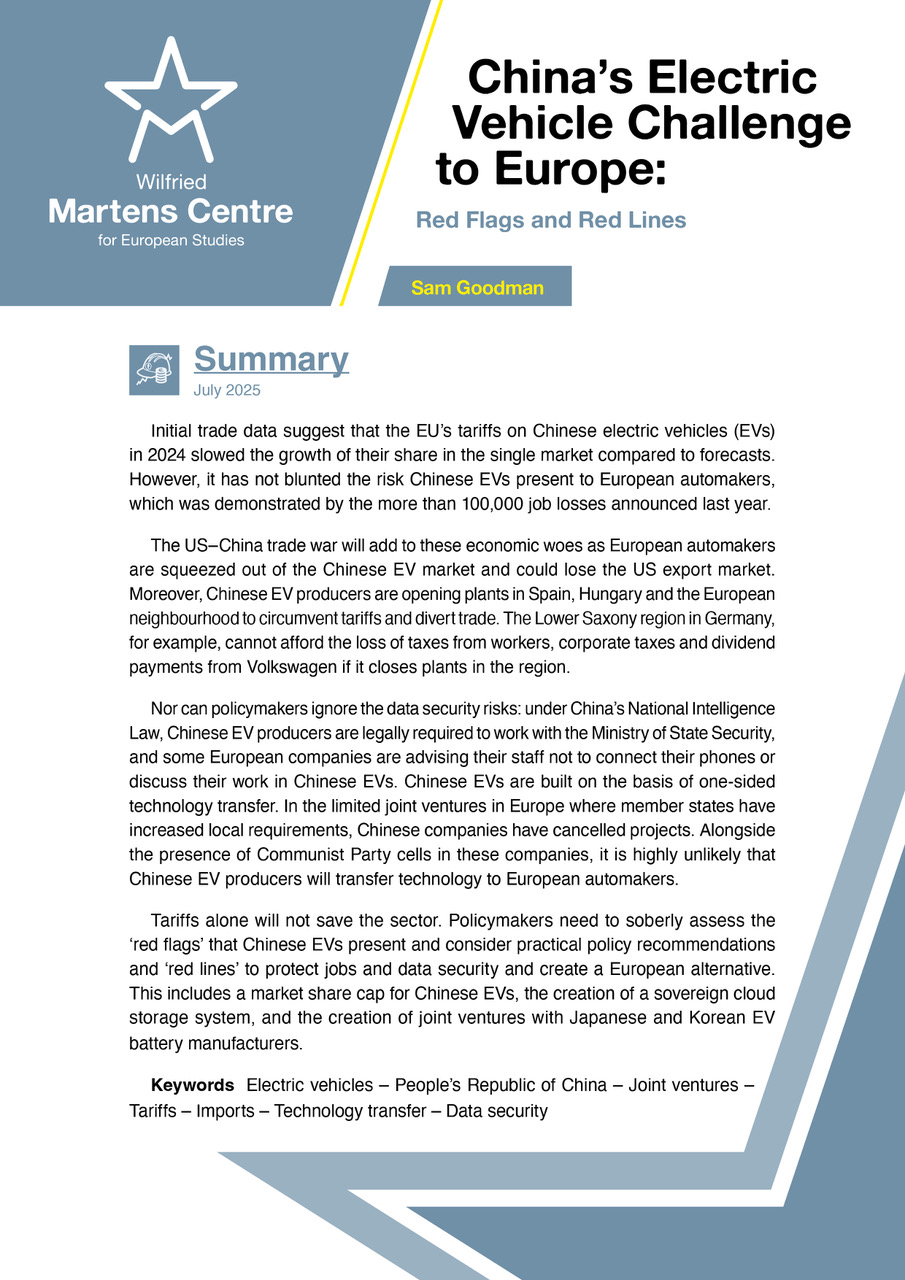China’s Electric Vehicle Challenge to Europe: Red Flags and Red Lines
08 July 2025
Initial trade data suggest that the EU’s tariffs on Chinese electric vehicles (EVs) in 2024 slowed the growth of their share in the single market compared to forecasts. However, it has not blunted the risk Chinese EVs present to European automakers, which was demonstrated by the more than 100,000 job losses announced last year.
The US–China trade war will add to these economic woes as European automakers are squeezed out of the Chinese EV market and could lose the US export market. Moreover, Chinese EV producers are opening plants in Spain, Hungary and the European neighbourhood to circumvent tariffs and divert trade. The Lower Saxony region in Germany, for example, cannot afford the loss of taxes from workers, corporate taxes and dividend payments from Volkswagen if it closes plants in the region.
Nor can policymakers ignore the data security risks: under China’s National Intelligence Law, Chinese EV producers are legally required to work with the Ministry of State Security, and some European companies are advising their staff not to connect their phones or discuss their work in Chinese EVs. Chinese EVs are built on the basis of one-sided technology transfer. In the limited joint ventures in Europe where member states have increased local requirements, Chinese companies have cancelled projects. Alongside the presence of Communist Party cells in these companies, it is highly unlikely that Chinese EV producers will transfer technology to European automakers.
Tariffs alone will not save the sector. Policymakers need to soberly assess the ‘red flags’ that Chinese EVs present and consider practical policy recommendations and ‘red lines’ to protect jobs and data security and create a European alternative. This includes a market share cap for Chinese EVs, the creation of a sovereign cloud storage system, and the creation of joint ventures with Japanese and Korean EV battery manufacturers.
ENJOYING THIS CONTENT
